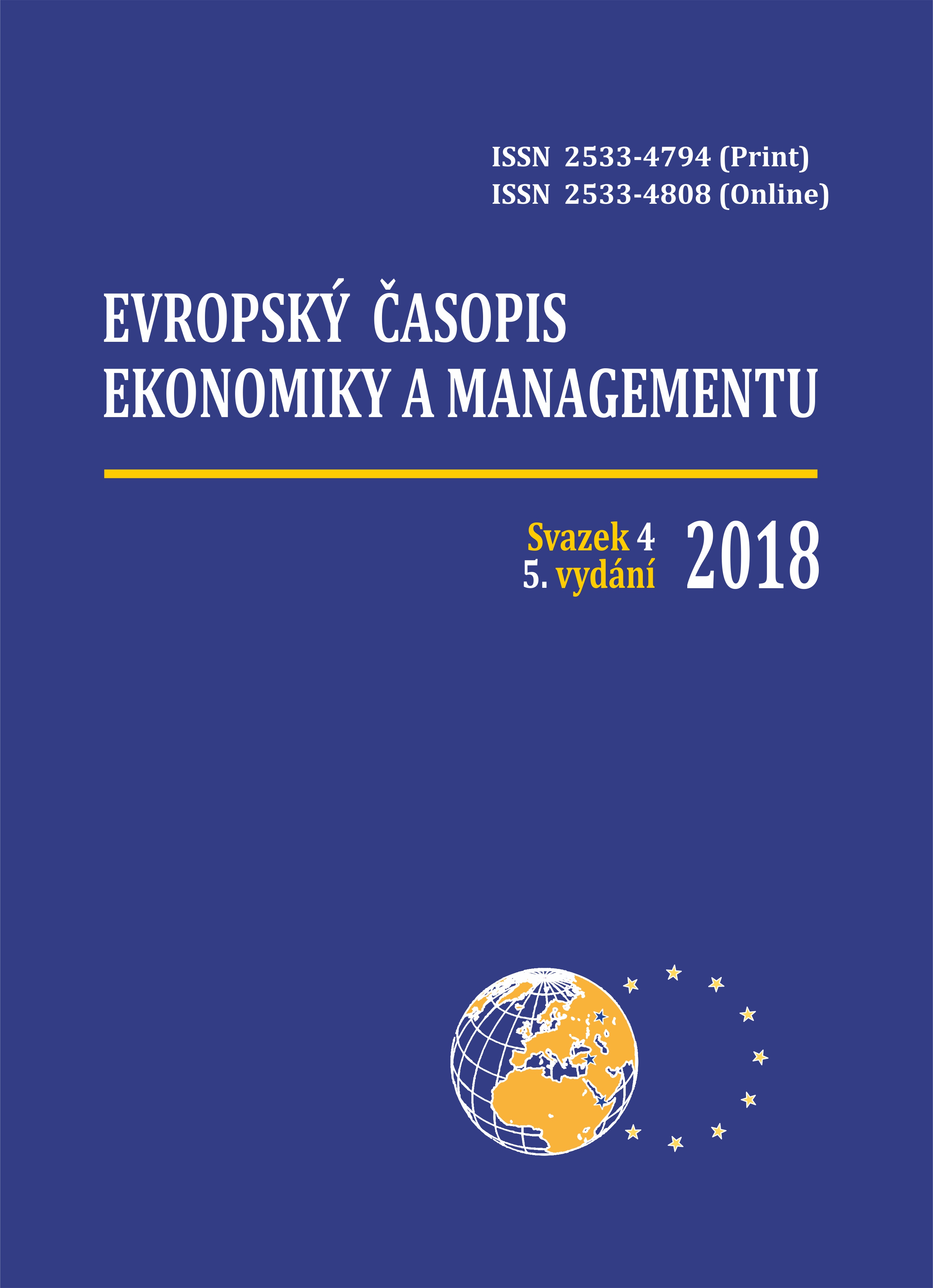DOI: 10.46340/eujem.2023.9.6.3
Andrii Polchanov, D.Sc. in Economics
Department of Finance and Digital Economy, Zhytomyr Polytechnic State University, Ukraine
Nataliia Vyhovska, D.Sc. in Economics
Department of Finance and Credit, Zhytomyr Polytechnic State University, Ukraine
Iryna Lytvynchuk, PhD in Economics
Department of Finance and Credit, Zhytomyr Polytechnic State University, Ukraine
Oleksii Polchanov
Department of Finance and Digital Economy, Zhytomyr Polytechnic State University, Ukraine
How to cite: Polchanov, A., Vyhovska, N., Lytvynchuk, I., Polchanov, O. (2023). Modeling the Impact of Diia City on it Business Activities in Ukraine. European Journal of Economics and Management, 9, 6, 24-33. https://doi.org/10.46340/eujem.2023.9.6.3
Abstract
The article studies the influence of the special tax regime Diia City on the activity of IT business in Ukraine. The results of the analysis of literary sources proved insufficient attention of scientists to the issue of quantitative assessment of changes from the transition of IT business from the general taxation system to Diia City, which determined the purpose of the article.
With the help of economic and statistical methods, the key performance indicators of enterprises engaged in computer programming (the predominant type of economic activity in the IT industry of Ukraine) were analyzed, as well as the trends of their change during 2013-2022 were revealed, which made it possible to make income, cost and financial result forecasts for 2023-2025.
Summarizing the practice of conducting IT business in Ukraine, the following main forms of interaction between companies and specialists in the market were identified: “company (employer) – specialist (employee)” and “company (customer) – specialist (independent individual entrepreneur contractor)”. The different status of specialists determines differences in the taxation of their incomes and the existence of additional tax risks. Switching to the Diia City regime provides an opportunity to minimize tax risks and receive significant tax benefits.
Using methods of scientific abstraction and modelling based on industry average values of revenues, costs and financial results, appropriate parameters for a typical Ukrainian IT company were determined. This made it possible to calculate the change in the amounts of personal income tax, single tax, single social contribution, corporate income tax, as well as the tax burden in general when a typical IT company of Ukraine switches from the general tax system with employees to Diia City. In addition, the impact of the transition to Diia City on the gross and net margin of a typical Ukrainian IT company in 2023-2025 was reflected.
Along with this, residence at Diia City does not ensure the liberalization of currency transactions, effective protection of business from force pressure, as well as other conditions created for IT companies registered in EU countries.
Keywords: business, financial model, management, information technology, planning, taxation.
JEL: L86, С52.
References
Cherkashin, V. (2022). Zberehty i zakhystyty IT-uspikh Ukrainy [Preserve and Protect Ukraine’s IT Success]. Ekonomichna pravda. [Economic Truth]. https://www.epravda.com.ua/columns/2022/12/14/694961/ [in Ukrainian].
Diia.City (2023). https://city.diia.gov.ua
Hetmantsev, D. O., Koval, Yu. A. (2022). Stanovlennia preferentsiinoho opodatkuvannia IT-industrii v Ukraini [Formation of Preferential Taxation of the IT Industry in Ukraine]. Yurydychnyi naukovyi elektronnyi zhurnal [Legal Scientific Electronic Journal], 8, 259-262. DOI: https://doi.org/10.32782/2524-0374/2022-8/55 [in Ukrainian].
IT Ukraine (2022). Do IT Like Ukraine Research: Tech Industry is Growing Despite the War. https://itukraine.org.ua/files/reports/2022/DoITLikeUkraine2022_EN.pdf
Khomenko, I. O., Horobinska, I. V., Braha, O. V. (2022). Svitovyi dosvid opodatkuvannia v IT industrii ta STARTUP [Global Taxation Experience in the IT Industry and STARTUP]. Yurydychnyi naukovyi elektronnyi zhurnal [Legal Scientific Electronic Journal]. DOI: https://doi.org/10.32782/2524-0374/2022-8/55 [in Ukrainian].
Krytska, I. (2023). MacPaw, «Multypleks», nelehalnyi tiutiun. Shcho Henprokuratura dumaie pro skandaly z tyskom sylovykiv na biznes. Intervʼiu zastupnyka Henprokurora [MacPaw, Multiplex, Illegal Tobacco. What the Prosecutor General’s Office Thinks about the Scandals Involving Pressure on Business by Security Forces. An Iinterview with the Deputy Prosecutor General]. Forbes. https://forbes.ua/money/macpaw-multipleks-nelegalniy-tyutyun-shcho-genprokuratura-dumae-pro-skandali-z-tiskom-silovikiv-na-biznes-intervyu-zastupnika-genprokurora-14062023-14182 [in Ukrainian].
Lagovska, O., et al. (2020). Method of Structuring Business Model and Mathematical Model of DSS of IT Companies. Financial and Credit Activity Problems of Theory and Practice, 2(33), 306-313. DOI: https://doi.org/10.18371/fcaptp.v2i33.206959
Maksimenko, M. (2023). MacPaw zvynuvachuiut u porushenni zemelnoho zakonodavstva. Naskilky gruntovni zvynuvachennia? Rozbyraiut yurysty [MacPaw is Accused of Violating Land Laws. How Substantiated are the Accusations? Lawyers Analyze the Case]. Forbes. https://forbes.ua/company/macpaw-zvinuvachuyut-u-porushenni-zemelnogo-zakonodavstva-naskilki-gruntovni-zvinuvachennya-rozbirayut-yuristi-27022023-12006 [in Ukrainian].
Melnik, T. (2023). Rezydenty «Diia.City» splatyly lyshe 12,7% vid usikh IT-podatkiv v Ukraini. Yaki kompanii naibilshe viriat u novyi podatkovyi rezhym [Diia.City Residents Paid only 12.7% of all IT Taxes in Ukraine. Which Companies Believe in the New Tax Regime the Most]. Forbes. https://forbes.ua/innovations/diya-siti-podatki-17022023-11812 [in Ukrainian].
Mysiuk, V., Tatenko, М., Tatenko, N. (2022). Spetsialnyi podatkovyi rezhym «Diia Siti»: osoblyvosti provedennia innovatsiinoho audytu [Special Tax Regime “Diya City”: Features of Innovative Audit]. Efektyvna ekonomika [Efficient economy], 5. DOI: https://doi.org/10.32702/2307-2105-2022.5.70 [in Ukrainian].
Nazarova, G., Kononenko, L. (2023). Opodatkuvannia rezydentiv Diia Siti: vitchyznianyi ta mizhnarodnyi dosvid [Taxation of Diia City Residents: Domestic and International Experience]. Naukovì perspektivi [Scientific perspectives], 8(38). DOI: https://doi.org/10.52058/2708-7530-2023-8(38)-378-395 [in Ukrainian].
Polchanov, A. Y., et al. (2023). Profitability Determinants of Companies in IT Industry: Case of Ukraine. Naukovyi Visnyk Natsionalnoho Hirnychoho Universytetu, 2, 190-196. DOI: https://doi.org/10.33271/nvngu/2023-2/190
The Business Research Company (2023). Information Technology Global Market Report 2023. https://www.thebusinessresearchcompany.com/report/information-technology-global-market-report
Tyshchenko, Y. (2022). Pravovyi rezhym «Diia City» yak faktor zaluchennia investytsii [Legal Regime of «Diia City» as a Factor for Attracting Investments]. Foreign Trade: Economics, Finance, Law, 120(1), 19-37. DOI: https://doi.org/10.31617/zt.knute.2022(120)03 [in Ukrainian].
Verkhovna Rada of Ukraine (2021, July 15). Zakon Ukrainy pro stymuliuvannia rozvytku tsyfrovoi ekonomiky v Ukraini № 1667-IX [Law of Ukraine on Stimulating the Development of the Digital Economy in Ukraine № 1667-IX]. https://zakon.rada.gov.ua/laws/show/1667-20 [in Ukrainian].
Vygovska, N. G., et al. (2022a). Finansove planuvannia diialnosti pidpryiemstv sfery IT [Financial Planning of Activity of IT Companies]. Efektyvna ekonomika [Efficient Economy], 12. DOI: https://doi.org/10.32702/2307-2105.2022.12.7 [in Ukrainian].
Vyhovska, N. G., et al. Y. (2022b). Otsinka finansovoho potentsialu pidpryiemstv IT-haluzi v Ukraini [Assessment of the Financial Potential of IT Companies in Ukraine]. Ekonomika, upravlinnia ta administruvannia [Economics, Management and Administration], 3(101), 81-86. DOI: https://doi.org/10.26642/ema-2022-3(101)-81-86 [in Ukrainian].
Vyhovska, N. G., et al. (2023). IT-biznes yak obiekt finansovoho upravlinnia [IT Business as an Object of Financial Management]. Ekonomika, upravlinnia ta administruvannia. [Economics, Management and Administration], 3(105), 159-165. DOI: https://doi.org/10.26642/ema-2023-3(105)-159-165 [in Ukrainian].
